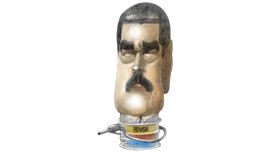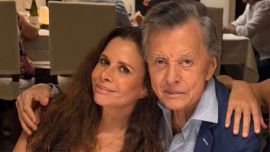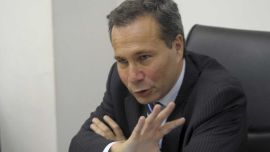Leftist former president Evo Morales crossed the border from Argentina into Bolivia on Monday, ending a year-long exile that followed a failed bid for a controversial fourth term.
Morales was accompanied to the border by Argentina's President Alberto Fernández, before crossing on foot.
He is due to travel more than 1,000 kilometres (625 miles) by land from the border as part of a vehicle caravan that will pass through several villages and areas where he remains hugely popular.
"I had no doubt I would return, but I didn't know it would be so soon," Morales declared before crossing into Bolivia from the Argentine border town of La Quaica, Jujuy Province.
Morales once again paid tribute to Fernández, who, he said "saved my life."
The indigenous leader has spent 11 months in Argentina, mostly in Buenos Aires, after he resigned as president and fled the country following three weeks of protests at his controversial re-election to an unconstitutional fourth term in October 2019.
Warm welcome
Hundreds of people braved a chill wind in Villazón, on the Bolivian side of the border since dawn as they waited to greet Morales, who ruled Bolivia for more than 13 years as its first indigenous head of state.
Wearing coluorful traditional clothing and waving banners and the indigenous Wiphala flag, they acclaimed Morales' return with cheers.
"We are happy. He is like our father, the father of all these humble people. He has returned and will always be with us in our hearts," said Alejandra Choque, a 56-year-old housewife.
But many local villagers, like 49-year-old butcher Mirian Franco, paid no heed to the returning hero.
"I have to open my business, the pandemic and the closing of the borders is killing me. I can't go and see Evo, he won't bring me any money," she said.
The three-day road trip back to his political base is loaded with symbolism for the 61-year-old former coca farmer turned president.
It comes just a day after his successor as head of the Movement for Socialism (MAS) party, Luis Arce, was inaugurated as president after winning last month's election. Fernández attended the ceremony in La Paz.
Allegations
Morales had been the subject of a detention order for "terrorism" by the previous right-wing interim government, but that was lifted by the public prosecutor following Arce's election victory.
He is also under investigation for "rape and trafficking" over two alleged relationships with underage girls, including one with whom he supposedly fathered a child.
Bolivia has one of the largest indigenous populations in Latin America, representing 41 percent of the country's 11.5 million population. More than 34 percent live in poverty, their situation made worse by the coronavirus pandemic.
Many are hoping for a reprise of the so-called "economic miracle," a boom period that saw much of the country's industry and infrastructure modernised under Morales, with Arce as his economy minister.
The former president's caravan is set to complete his tour on Wednesday in the town of Chimore, from where he fled the country, initially for Mexico, a year ago to the day.
Morales remains an immensely popular figure and many Bolivians believe his return risks overshadowing Arce's leadership, and wonder who will really be pulling the strings of the new government.
The ex-president has repeatedly said he will not engage in politics, though his critics remain sceptical.
related news
by María Lorente, AFP


























Comments